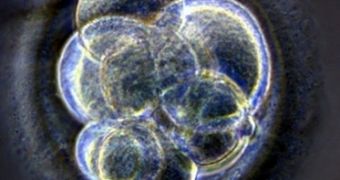The day when we will see the man-animal mutants from the Ninja Turtles on the streets is approaching.
British ministers have allowed the creation of human-animal hybrid embryos for scientific purposes.
Last year, a ban proposal made researchers fear that medical breakthroughs will be stopped. The research involving hybrid embryos will be permitted only for serious diseases and will necessitate a license.
Opponents of this technique accuse the ethics of employing human cells in this manner.
Public Health Minister Caroline Flint stated that the government had always wanted to "leave the door open" for human-animal hybrid research, but on a case-by-case basis. "Scientists had put forward more evidence about the importance of using hybrid embryos. We saw this was an area where these could be used for scientific benefit," she said.
What is allowed is the creation of human embryos mixed with one or more animal cells, not real human-animal hybrids, realized by combining sperm and eggs, which is still outlawed. The hybrid embryos will be permitted to develop just for 14 days and it's forbidden to be implanted into a womb.
Scientists want to use these researches in the fight against severe conditions, like Alzheimer's. "This research has many potential benefits for the understanding of disease and for treatments and should not be feared", said Professor Robin Lovell-Badge, head of the division of Developmental Genetics at the MRC National Institute for Medical Research.
"It is appalling that the government has bowed to pressure from the random collection of self-interested scientists and change its prohibitive stance. This is a highly controversial and terrifying proposal, which has little justification in science and even less in ethics. Endorsement by the UK government will elicit horror in Europe and right across the wider world", said Josephine Quintavalle, of the campaign group Comment on Reproductive Ethics.
The minister's new decision updated the Human Fertilization and Embryology Act from 1990, as science has advanced significantly.

 14 DAY TRIAL //
14 DAY TRIAL //